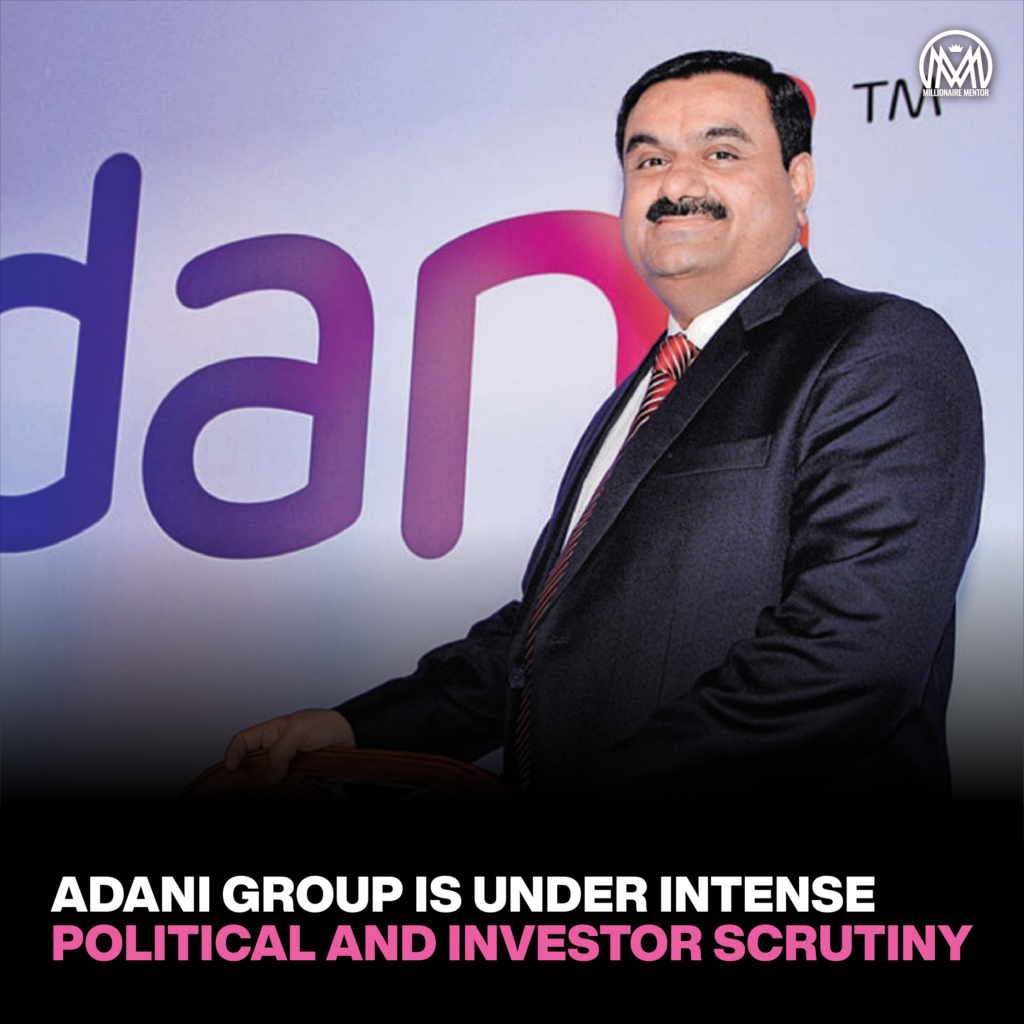Adani Group, one of India’s largest conglomerates, has reportedly pulls back its ambitious growth targets after a Hindenburg bomb report by short-seller Hindenburg Research last year. The report, which accused Adani of financial impropriety and environmental violations, led to a sharp drop in the company’s stock price and forced Adani to defend its reputation.
According to a report in the Financial Times, Adani has now cut its target of becoming the world’s largest solar power company by 2025. The company had previously set a goal of reaching 25GW of solar power capacity by 2025, but has now reduced that target to 15GW.
Tycoon to rein in non-core expansion; focus on ports, power.
The report suggests that the fallout from the Hindenburg bomb report has damaged Adani’s reputation and made it more difficult for the company to attract investment and partnerships. Adani has denied the allegations in the report and has threatened legal action against Hindenburg.
Adani has been aggressively expanding its renewable energy portfolio in recent years, as it seeks to reduce its reliance on fossil fuels and capitalize on India’s growing demand for clean energy. The company has invested heavily in solar and wind power projects, and has also entered the electric vehicle and battery storage markets.
Despite the setback caused by the Hindenburg report, Adani remains a major player in India’s energy sector and continues to pursue ambitious growth targets. The company recently won a bid to develop a 6GW solar project in Rajasthan, which will be the world’s largest solar park once completed.
After Hindenburg bomb Adani Group is under intense political and investor scrutiny.
The scaling back of Adani’s solar power target is a reminder of the challenges facing India’s ambitious renewable energy goals. India has set a target of achieving 450GW of renewable energy capacity by 2030, but progress has been slow due to regulatory challenges, infrastructure bottlenecks, and financing issues.
Adani’s decision to scale back its solar power target underscores the impact of the Hindenburg report on the company’s growth prospects. While Adani remains a major player in India’s energy sector, the fallout from the report has damaged the company’s reputation and made it more difficult to attract investment and partnerships. The scaling back of Adani’s growth targets also highlights the challenges facing India’s renewable energy sector, which must overcome significant hurdles to achieve the country’s ambitious clean energy goals.


Trending News Articles
 Global financial stocks lose $465 billion due to SVB effect.by Jason Stone●March 15, 2023
Global financial stocks lose $465 billion due to SVB effect.by Jason Stone●March 15, 2023 “No One In Britain & Germany Is Ready For What’s Coming..” | Jordan Petersonby Jason Stone●November 15, 2022
“No One In Britain & Germany Is Ready For What’s Coming..” | Jordan Petersonby Jason Stone●November 15, 2022 $115 million stolen from two crypto firms linked to Justin Sun after hack.by Jason Stone●November 24, 2023
$115 million stolen from two crypto firms linked to Justin Sun after hack.by Jason Stone●November 24, 2023 “We’ll Witness The Biggest Market Crash In 6 To 9 Months” | Patrick Bet-Davidby Jason Stone●October 18, 2022
“We’ll Witness The Biggest Market Crash In 6 To 9 Months” | Patrick Bet-Davidby Jason Stone●October 18, 2022





